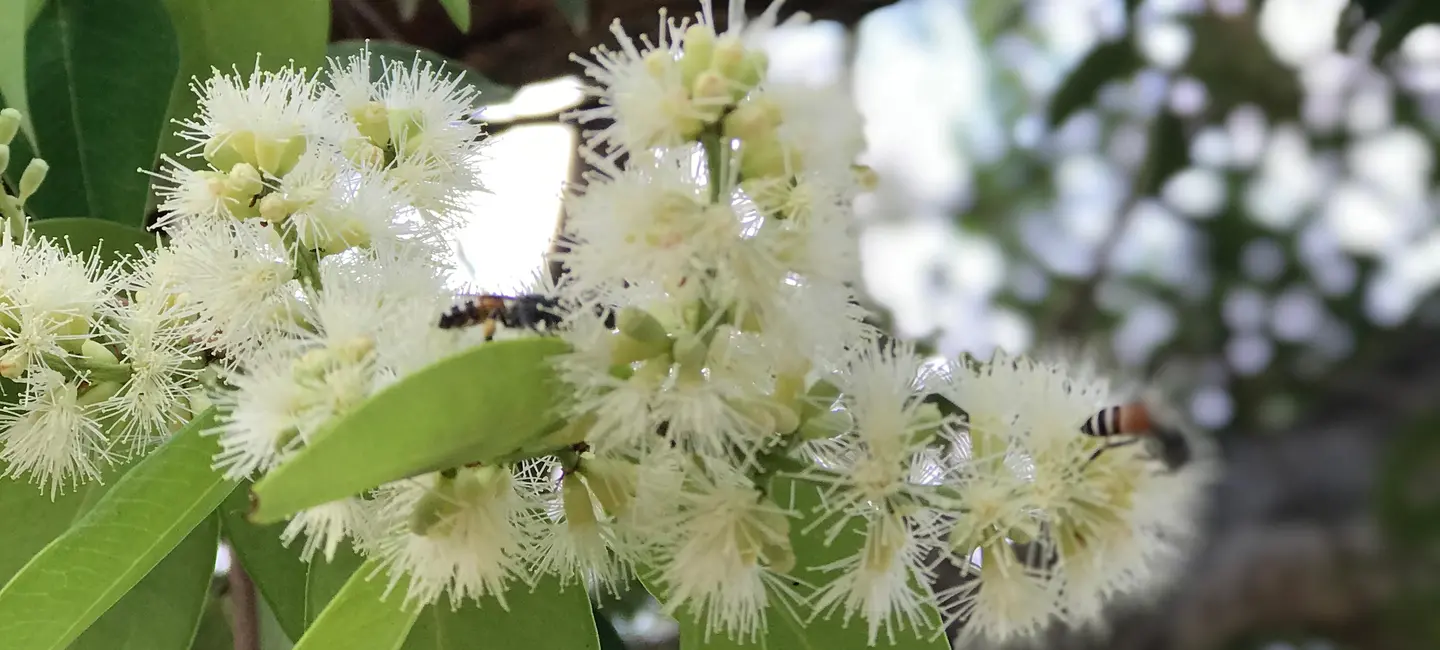
Cajeput oil is produced by steam distillation of fresh leaves of the cajeput tree (Melaleuca leucadendra). Cajeput oil is used in food and as a medicine.
People use cajeput oil for colds and congestion, headaches, toothache, skin infections, pain, and other conditions, but there is no good scientific evidence to support these uses.
Don't confuse cajeput oil with tea tree oil (Melaleuca alternifolia) or niauli oil (Melaleuca viridiflora).
Is It Effective?
NatMed Pro rates effectiveness based on scientific evidence according to the following scale: Effective, Likely Effective, Possibly Effective, Possibly Ineffective, Likely Ineffective, Ineffective, and Insufficient Evidence to Rate.
- Cancer.
- Common cold.
- Fungal skin infections.
- Headache.
- Joint pain.
- Toothache.
- Other conditions.
More evidence is needed to rate the effectiveness of cajeput oil for these uses.
Is it Safe?
Cajeput oil contains a chemical called cineole. When applied to the skin, cineole can irritate the skin, which relieves pain beneath the skin.
When taken by mouth: Very small amounts of cajeput oil are LIKELY SAFE when added to food as flavoring. There isn't enough reliable information available to know if taking cajeput oil in larger amounts as a medicine is safe or what the side effects might be.
When applied to the skin: Cajeput oil is POSSIBLY SAFE for most people when applied to unbroken skin. Applying cajeput oil to the skin may cause allergic reactions in some people.
When inhaled: It is POSSIBLY UNSAFE to inhale cajeput oil. It can cause breathing problems.
Special Precautions & Warnings:
Pregnancy and breast-feeding: There isn't enough reliable information to know if cajeput oil is safe to use when pregnant or breast-feeding. Stay on the safe side and avoid use.
Children: Do not let children inhale cajeput oil. Cajeput oil is LIKELY UNSAFE when inhaled. It can cause serious breathing problems. Applying cajeput oil to a child's face is also LIKELY UNSAFE. Cajeput oil that is applied to the face can be inhaled and cause breathing problems.
Asthma: Inhaling cajeput oil might cause an asthma attack.
Diabetes: Cajeput oil might decrease blood sugar levels. Monitor your blood sugar carefully if you have diabetes and use cajeput oil as a medicine. The dose of your diabetes medication may need to be changed.
Surgery: Cajeput oil might affect blood sugar levels. This has raised some concern that it might interfere with blood sugar control during and after surgery. Stop using cajeput oil as a medicine at least 2 weeks before a scheduled surgery.
Medications changed by the liver (Cytochrome P450 2D6 (CYP2D6) substrates)
Interaction Rating=Moderate Be cautious with this combination.
Some medications are changed and broken down by the liver. Cajeput oil might slow down how quickly the liver breaks down some medications. Taking cajeput oil along with some medications that are broken down by the liver might increase the effects and side effects of some medications. Before taking cajeput oil, talk to your healthcare provider if you are taking any medications that are changed by the liver.
Medications that might be affected include amitriptyline (Elavil), clozapine (Clozaril), codeine, desipramine (Norpramin), donepezil (Aricept), fentanyl (Duragesic), flecainide (Tambocor), fluoxetine (Prozac), meperidine (Demerol), methadone (Dolophine), metoprolol (Lopressor, Toprol XL), olanzapine (Zyprexa), ondansetron (Zofran), tramadol (Ultram), trazodone (Desyrel), and others.
Medications for diabetes (Antidiabetes drugs)
Interaction Rating=Moderate Be cautious with this combination.
Cajeput oil might lower blood sugar. Diabetes medications are used to lower blood sugar. By lowering blood sugar, cajeput oil might increase the risk of your blood sugar going too low. Monitor your blood sugar closely. The dose of your diabetes medication might need to be changed.
Some medications used for diabetes include glimepiride (Amaryl), glyburide (DiaBeta, Glynase PresTab, Micronase), insulin, pioglitazone (Actos), rosiglitazone (Avandia), chlorpropamide (Diabinese), glipizide (Glucotrol), tolbutamide (Orinase), and others.
Herbs and supplements that might lower blood sugar: Cajeput oil might lower blood sugar. Using it with other herbs and supplements that lower blood sugar might increase the risk of your blood sugar going too low. Some of these herbs and supplements include bitter melon, ginger, goat's rue, fenugreek, kudzu, willow bark, and others.
There are no known interactions with foods.
The appropriate dose of cajeput oil for use as treatment depends on several factors such as the user's age, health, and several other conditions. At this time there is not enough scientific information to determine an appropriate range of doses for cajeput oil. Keep in mind that natural products are not always necessarily safe and dosages can be important. Be sure to follow relevant directions on product labels and consult your pharmacist or physician or other healthcare professional before using.
Aceite de Cajeput, Cajeputi Aetheroleum, Cajeputier, Essence de Caia-Pouti, Essence de Cajeput, Huile de Cajoupouli, Huile de Cajeput, Kajuput, Kajuputi leucadendra, Kayaputi, Melaleuca leucadendra, Melaleuca Leucodendron, Melaleuca quinquenervia, Myrtus leucadendra, Paperbark Tree Oil, Punk Tree.
Information on this website is for informational use only and is not intended to replace professional medical advice, diagnosis, or treatment. While evidence-based, it is not guaranteed to be error-free and is not intended to meet any particular user’s needs or requirements or to cover all possible uses, safety concerns, interactions, outcomes, or adverse effects. Always check with your doctor or other medical professional before making healthcare decisions (including taking any medication) and do not delay or disregard seeking medical advice or treatment based on any information displayed on this website.
© TRC Healthcare 2024. All rights reserved. Use and/or distribution is permitted only pursuant to a valid license or other permission from TRC Healthcare.
